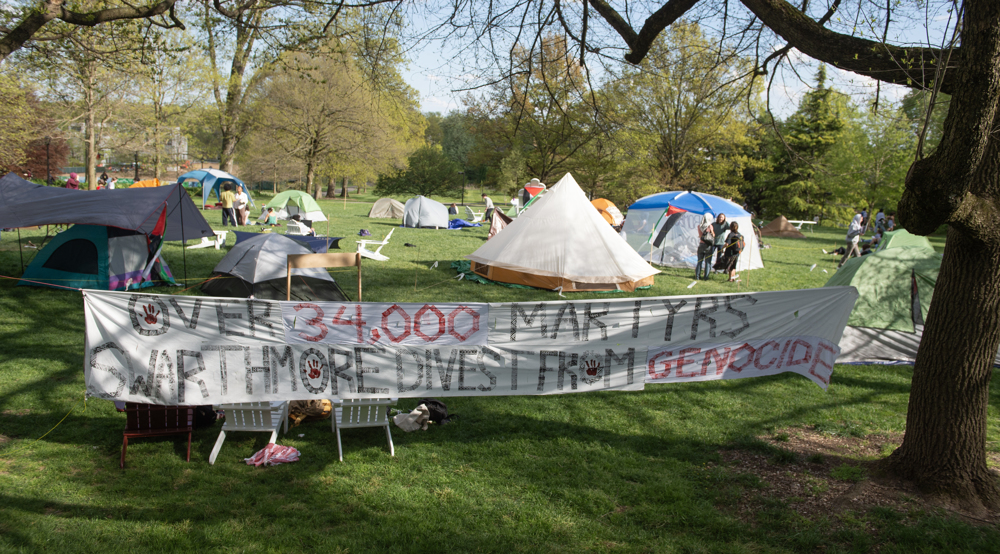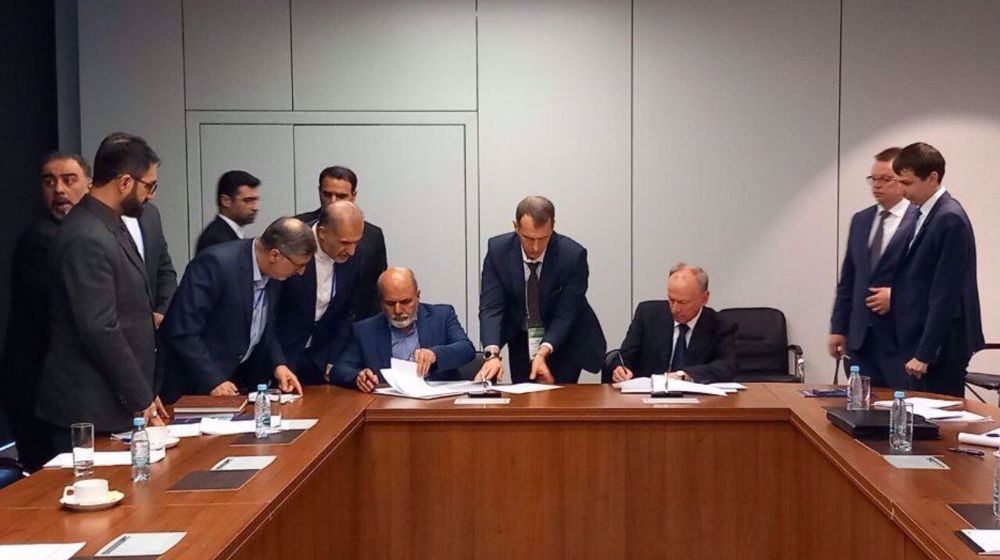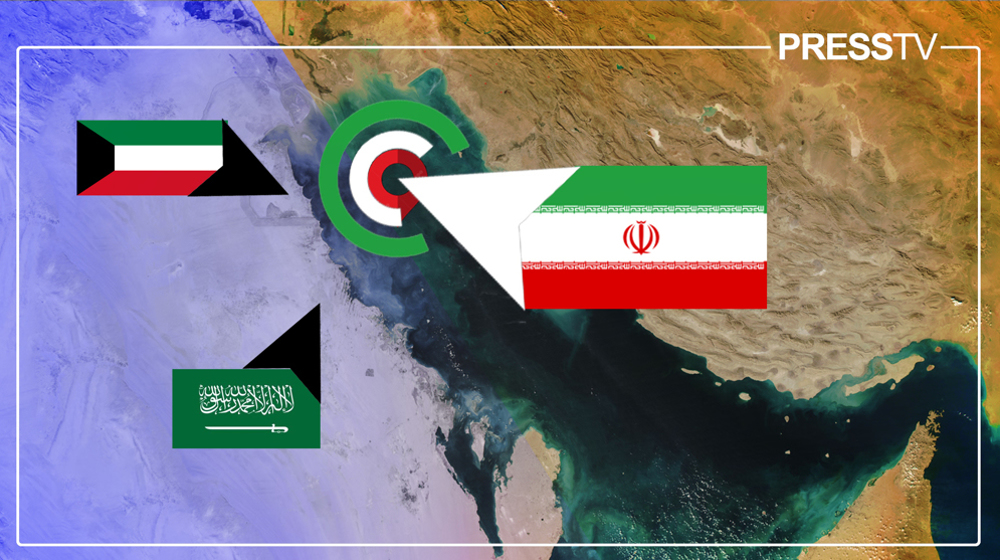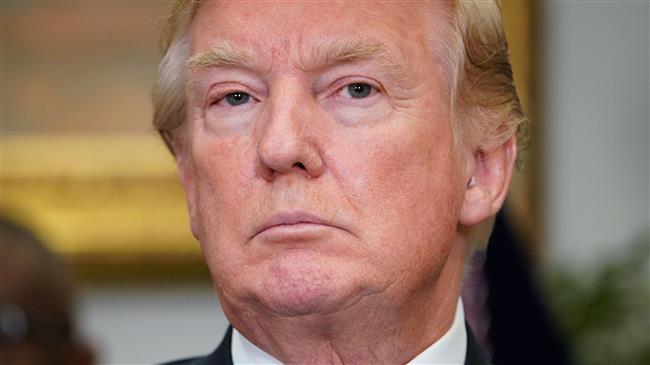Europe policy of appeasing Trump on Iran 'wrong': Official tells FM Le Drian
Iran's top security official has criticized Europe for trying to appease US President Donald Trump who has threatened to scuttle a 2015 nuclear deal with Tehran if radical changes are not made to it.
The criticism by Secretary of Iran's Supreme National Security Council Ali Shamkhani on Monday came as French Foreign Minister Jean-Yves Le Drian began his visit to Tehran with a threat of sanctions over the country's missile capabilities.
"The European policy of giving concessions to America in order to keep the country in the JCPOA is wrong, indicating passiveness and submission to Trump's psychological game," he told Le Drian in a meeting.
Britain, France and Germany are reportedly working with US officials to draw up a strategy to "improve" the Iran nuclear deal in return for Trump keeping the pact alive.
Shamkhani warned that any move which leads to the failure of the Joint Comprehensive Plan of Action (JCPOA) - as the nuclear accord is officially called - will make other international agreements lose their validity.
"The logic of any international agreement is that all parties and the international community protect it. Demands from one party for adherence and indifference to the violations of the other side are not acceptable," he said.
Trump has set a May 12 ultimatum for the European signatories to change the agreement or have the US leave it altogether.
The US president has demanded that Iran's ballistic missile program be knit into the deal for restrictions and international inspections of all sites deemed suspect be allowed while “sunset” clauses under which limits on the Iranian nuclear program start to expire after 10 years be removed.
Iranian Armed Forces spokesman Masoud Jazayeri said Monday that the country will press on with its missile program regardless of Western pressure to halt it.
"Iran's missile program will continue non-stop and foreign powers have no right to intervene on this issue," he said, stressing that no Iranian official had permission to "discuss this issue with foreigners."
Shamkhani himself told Le Drian that Iran's missile program poses no threat to any country and is purely defensive. "Our missile work is... in line with our defensive policy, which poses no threat to any country," he said.
He was responding to the French foreign minister's remarks ahead of his visit on Sunday, saying that Iran had to address "concerns" over its ballistic missile program or risk new sanctions.
“There are ballistic programs of missiles that can reach several thousand kilometers which are not compatible with UN Security Council resolutions and exceed the sole need of defending Iran’s borders,” he told the Journal du Dimanche newspaper. “If not tackled head-on, this country risks new sanctions.”
Le Drian will hold meetings next with President Hassan Rouhani and Foreign Minister Mohammad Javad Zarif amid expectations of tough and "frank" talks, especially with the top Iranian diplomat who is known for his no-nonsense style.
Iranian officials are already vexed by French leaders' characterization of Iran's missile program and its role in the Middle East in disparaging terms.
Shamkhani reminded France's top diplomat of Iran’s “costly” contribution to the anti-terror fight in the region, saying terrorism could have grown out of hand in Europe, including France, had it not been for Iran's efforts.
Paris, the official said, should reciprocate by confronting France-based terrorists of Mujahedin Khalq Organization (MKO), who have the blood of thousands of Iranians on their hands.
Instead, France's continuing tolerance of the MKO contradicts its international obligation regarding terrorism and is counterproductive to growing relations between Tehran and Paris, he said.
Shamkhani further touched on the US and Europeans' indifference to a Saudi-led "campaign of bloodshed and destruction" in Yemen and at the same time trying to blame the Yemeni crisis on Iran.
The contradictory approach, he said, has given rise to the speculation that economic interests are given preference over human rights, he said.
Le Drian, for his part, said the prospects of political and economic relations between Iran and France were “very positive” in the wake of the nuclear agreement.
He said new measures will be announced soon in order to “seriously” facilitate monetary and banking ties between Iran and France.
Iran: Awakened world public opinion determined to stop Israel war crimes
US House speaker wants National Guard to quell pro-Palestine student protests
Iran, Russia sign MoU to strengthen security cooperation
VIDEO | Iran marks defeat of US military operation in Tabas Desert
VIDEO | Press TV's news headlines
US troopers crack down on pro-Palestinian protests at University of Texas
VIDEO | German warship departs Red Sea as EU 'naval mission' fails
VIDEO | Palestinians inspect rubble of destroyed building in Rafah














 This makes it easy to access the Press TV website
This makes it easy to access the Press TV website